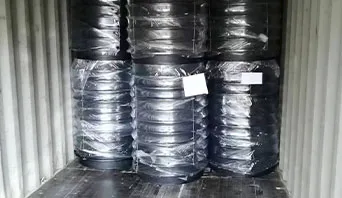
Noy . 11, 2024 18:35 Back to list
what is a biomass heating system
Understanding Biomass Heating Systems
As the world increasingly seeks sustainable and renewable energy solutions, biomass heating systems are gaining attention as an eco-friendly alternative to traditional fossil fuel heating. Biomass heating harnesses organic materials—such as wood pellets, agricultural residues, and other biological matter—to produce heat energy. This renewable energy solution not only provides efficient heating but also contributes positively to reducing carbon footprints.
What is Biomass?
Biomass refers to any organic material that can be used as fuel. It encompasses a wide range of sources, including
- Wood and Wood Products Logs, chips, sawdust, and pellets. - Agricultural Residues Corn stalks, straw, and other by-products from farming. - Energy Crops Perennial grasses and other crops specifically cultivated for energy production. - Animal Manure Waste from livestock can also be converted to energy.
By using these materials, biomass heating systems take advantage of the naturally occurring carbon cycle. As plants grow, they absorb carbon dioxide from the atmosphere. When they are burned for energy, they release that carbon dioxide back into the atmosphere. This cycle helps in maintaining a balance and reduces the net increase of greenhouse gases.
How Does a Biomass Heating System Work?
Biomass heating systems operate on relatively simple principles
. They typically consist of the following components1. Fuel Storage Biomass fuel is stored in a designated area, often in the form of wood pellets or chips. 2. Burning Unit Here, the biomass is ignited and combusted to produce heat. This can be done in various types of stoves, boilers, or furnaces. 3. Heat Exchanger The heat generated by the combustion process is transferred to water or air, which can then be circulated throughout a building. 4. Distribution System The heated water or air is moved through a network of pipes or ducts to provide warmth in residential, commercial, or industrial buildings.
what is a biomass heating system

Advantages of Biomass Heating Systems
Biomass heating systems offer numerous benefits, making them an attractive option for many homeowners and businesses
1. Renewable Energy Source Biomass is plentiful and, when managed sustainably, can provide a continuous supply of energy. 2. Cost-Effective In many regions, biomass fuels can be less expensive than oil or natural gas. Additionally, they often benefit from local production, reducing transportation costs. 3. Carbon Neutrality As previously mentioned, the combustion of biomass is part of a closed carbon cycle, making it a relatively low-emission energy source. 4. Energy Independence Using locally sourced biomass can reduce reliance on foreign oil and enhance local economies. 5. Waste Reduction By utilizing agricultural and forestry by-products, biomass heating systems help in managing waste and promoting recycling efforts.
Challenges and Considerations
Despite their advantages, biomass heating systems are not without challenges. Some of these include
- Air Quality Concerns The burning of biomass can release particulate matter and volatile organic compounds (VOCs), which may affect air quality if not properly managed. - Sustainability Overharvesting of biomass resources can lead to deforestation and habitat loss, making sustainable sourcing essential. - Initial Costs The upfront investment for some biomass systems can be significant, though they often pay off in the long run through lower operational costs.
Conclusion
Biomass heating systems present a promising avenue for sustainable energy that can meet heating demands while reducing environmental impact. By utilizing readily available organic materials, these systems contribute to energy independence and promote a greener economy. As technology continues to advance, improvements in efficiency and emissions control will likely make biomass heating an increasingly popular choice for both residential and commercial applications. Adopting such systems not only supports individual energy needs but also aligns with global environmental goals, paving the way towards a more sustainable future.
-
High-Efficiency Commercial Oil Fired Steam Boiler for Industry
NewsJul.30,2025
-
High-Efficiency Biomass Fired Thermal Oil Boiler Solutions
NewsJul.30,2025
-
High Efficiency Gas Fired Thermal Oil Boiler for Industrial Heating
NewsJul.29,2025
-
High-Efficiency Gas Fired Hot Water Boiler for Sale – Reliable & Affordable
NewsJul.29,2025
-
High Efficiency Biomass Fired Hot Water Boiler for Industrial and Commercial Use
NewsJul.29,2025
-
High-Efficiency Biomass Fired Hot Water Boiler for Industrial Use
NewsJul.28,2025
Related PRODUCTS






















